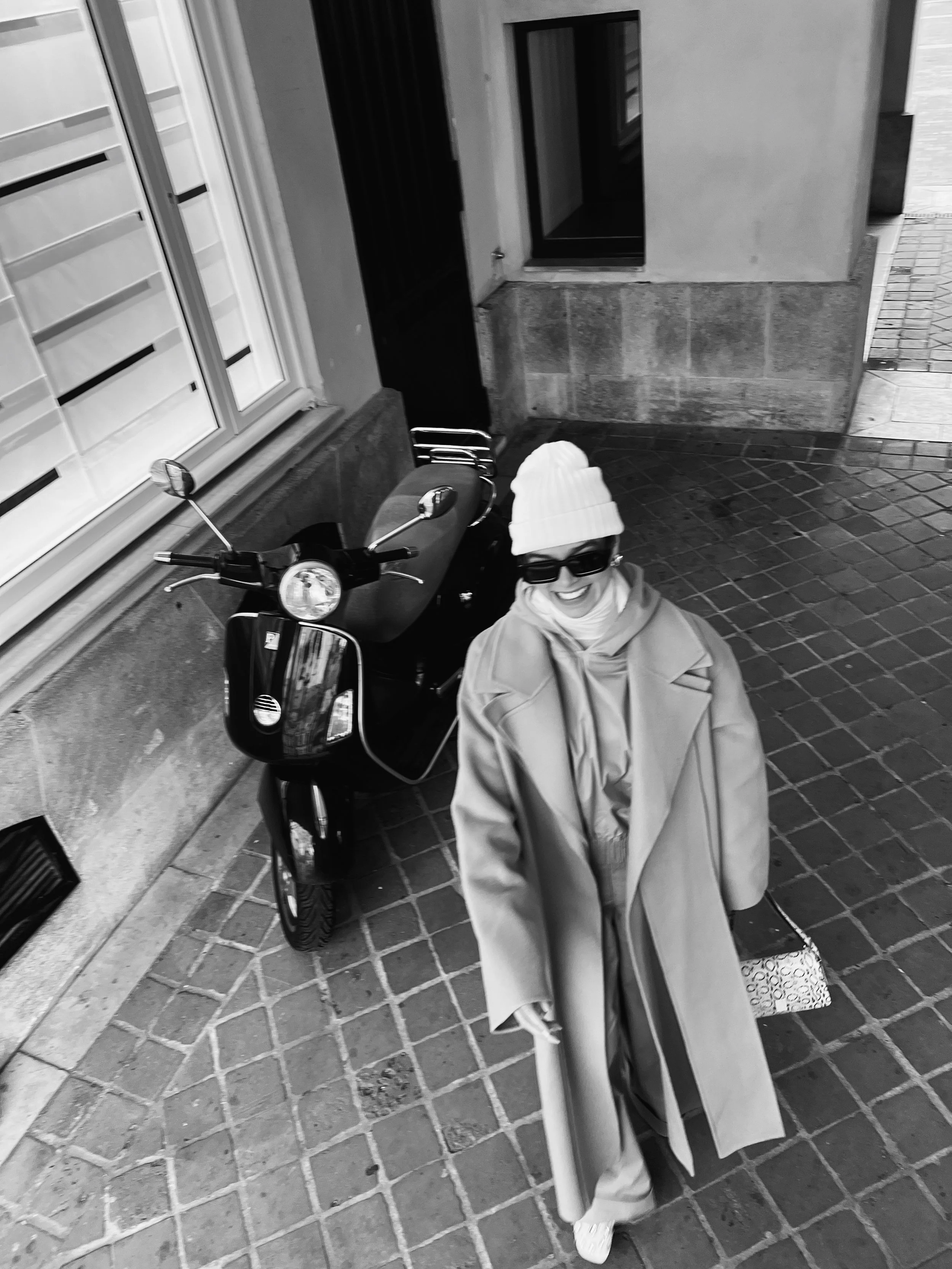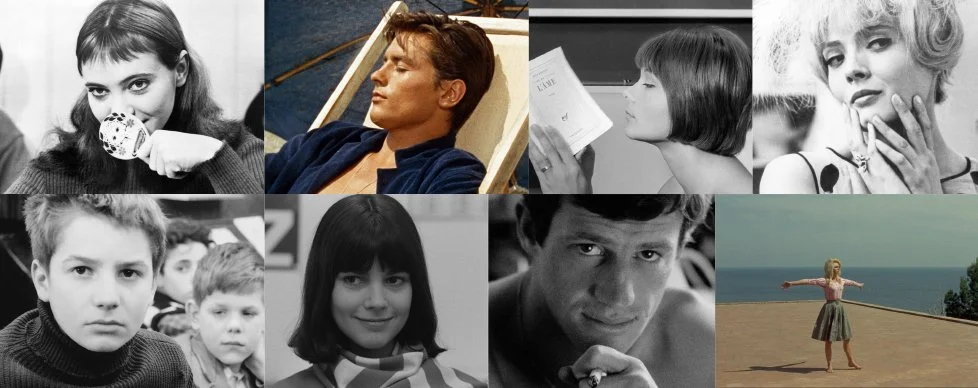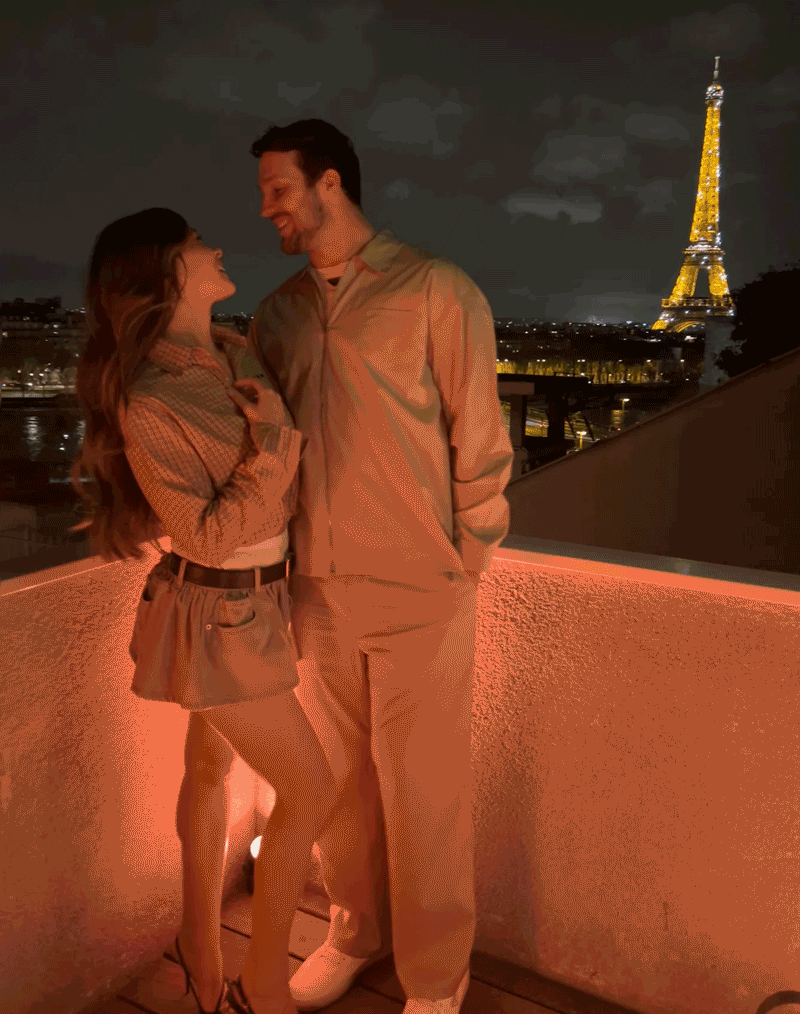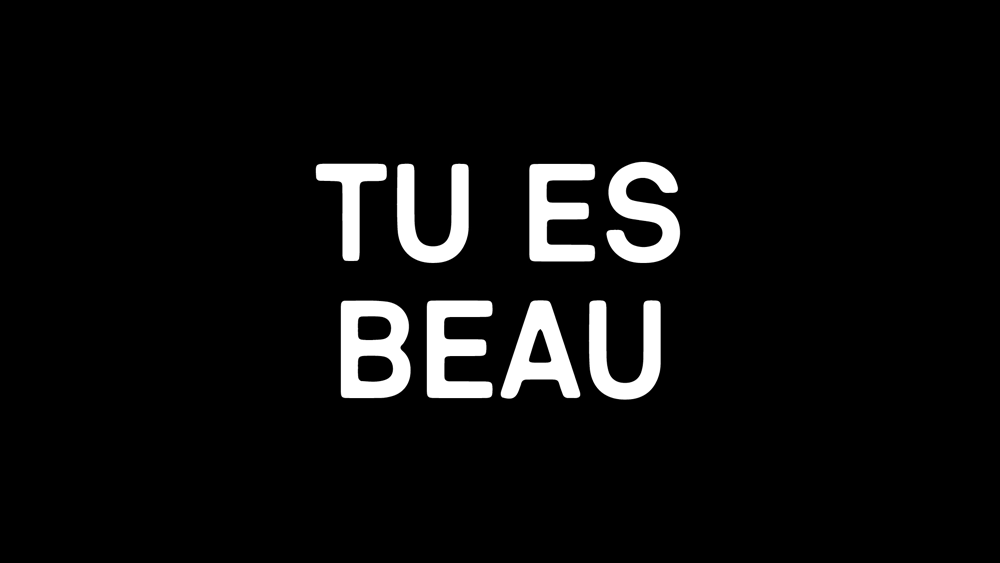My fascination with Paris started with a mother-daughter trip when I was thirteen. Mrs. Prada invited me to sit front row at the Miu Miu show (casual). I remember every detail from that first trip, from the dim light in the hotel room to the light blue eyeshadow I wore to the runway show (a regret in hindsight, but even at a young age, I felt Paris deserved a look). While I’ve only traveled back to Paris a handful of times over the years — the most recent being a 6-day trip this past March for a Miu Miu show; full circle! — the city lives with me wherever I am. The romance, beauty, and rich history, that je ne sais quoi, have bled into how I dress, the films I watch, the music I listen to, and maybe most clearly, the aesthetic of this newsletter.
In the ‘60s there was a film-making movement known as The French New Wave, it’s credited for giving directors full creative control of their storytelling. And Beau Society, while not a film, is the first project where I have complete artistic ownership over the look, feel, and voice. Like the movies to come out of The New Wave, this newsletter has that feeling of raw personal experimentation.
Different aspects of French culture are infused into Beau Society. Most obviously, Beau translates to beautifulin French. Unintentionally, my mood boards have been littered with French influences, from film to music to design. As luck would have it, my design collaborator spent over a decade living in Paris. He’s also a huge film buff, has years of experience in the music industry (he worked with Françoise Hardy in the ‘90s!), and knows all the niche references that live in my head. We recently had a FaceTime conversation that I knew had to live inside this newsletter. Welcome, Paul Ritter.
The following interview has been edited for length and clarity.
Hailee: I have to tell you, it’s been harder than it should be to see eye to eye with someone creatively on a project that feels so simple but has so much depth. I think about my music, where I had everything so laid out to the point of, like, I didn’t think I could make it more clear. And then it didn’t land. So I feel like clicking with you on this speaks to more than just your talent, which is beyond me. But your background, where you're from, and your influences.
Paul: I feel the same way. I have to tell you, I've been gushing about you to my friends and family because you sent me the best goddamn mood board I've ever gotten in my entire career. You sent it and I was, like, this is everything that I love, and everything I would put on a mood board, too.
H: I’m so visual. So obviously for anything creative or professional, I have to make a mood board. And so for you to understand and resonate with my vision for Beau Society was a home run for me.
P: Yeah, 1000%. I lifted all our colors off that mood board directly; I went in with a little computer eyedropper. And then it was just finding those Godard fonts.
H: Do you have a favorite Godard film?
P: Breathless would be my number one Godard movie. But I have a list. Truffaut's Les 400 Coups (The 400 Blows). The whole Antoine Doinel saga is five movies. It’s amazing to see him morph and grow up. Have you seen La Boum? It’s a movie about a crush and a heartbreak. It's the most quintessential ‘80s movie ever, and to fully understand the French today, you have to watch La Boum.
H: So tell me about living in Paris.
P: I was born in London. I moved to Paris when I was 12 for the best reason: My dad fell in love, so he moved for love. He still lives there. Different girl, but he still lives there. I stayed all through high school. I went to Parsons School of Design in Paris for four years. Then, I was supposed to be an illustrator, but I got hired by my design teacher to work at his agency. He's like, ‘You're into music, come work for me.’ He was a dear, dear friend. He was completely insane. He was seven feet tall and weighed like a hundred pounds, maybe. He had sideburns and a mustache. And his name was, I kid you not, Bill Butt. He was from Detroit, and Iggy Pop was his idol because Iggy Pop's dad was his math teacher.
H: That’s amazing. And you have to tell me about working with Françoise Hardy!
P: I worked with her for two and a half years. I was the creative director of Virgin Records in France, specifically for French artists, for everything from album covers to videos. One day, I was told I had to go to Françoise Hardy's house. I go to Françoise's house, which is painted completely black. The entire house, all the walls are painted black. And she and I just kind of weirdly hit it off — mostly because I got the right red for her album. She wanted a very specific red and was like, we'll never get it. But I found it and she liked me.
She was fucking beautiful. Like, she aged so beautifully. And I loved all her quirks. I mean, she was a hard-ass. I remember having shoots set up. And she's, like, ‘No, I can't, I need a five-day warning. I can't wash my hair for five days before a shoot because I have to have the right texture.’
H: Couldn’t be me. There’s something that comes over me when her music is playing. What is it about her music that you love?
P: She was always searching. She was an exceptional writer. Her lyrics are just mind-blowingly good. That's one of the things the French do really well. Lyrics.
H: Back to Paris, what is your favorite thing to do when you’re back in the city?
P: One of my favorite things is sitting at a café and having French fries with mustard and a beer. There's nothing better on earth than that. Then I used to love Colette. Museums, the Pompidou Center, the most genius-designed art building in the world. They took all the innards — heating, air, water, plumbing — and put them on the outside so the inside could just be like a big box, and it’s a fantastic place.
The gallery scene in Paris is booming right now, with cool indies like Brigitte Mulholland and Semiose, and of course the megas like Hauser and Wirth, which if you're in France right now, you have to go to because Nicole Eisenman is having a show that's ending on the 21st I think of September and it's mind-blowing.
H: Is there any place in America, or New York where you live, that you feel captures the essence of Paris? I’m thinking about someone who can’t get there.
P: I don't know. I mean, they're so different. Let Paris be Paris and New York be New York. Everything has to be specific; otherwise, everything is just nothing.
Paul’s right. What makes Paris Paris is its specificity. I think about my most recent trip often. I was in the City of Love with my love (highly recommend).
Beau Society was alive and well in my brain and I was soaking up all the inspiration in my favorite city. If you dream of planning a trip to Paris — or have one on the books, lucky you — here’s what I’d recommend:
● Eat all the chocolate croissants: Every morning we went on a hunt for the perfect chocolate croissant. We went to random places and ordered a chocolate croissant and we’d rate them 1-10.
● Get lost in Montmartre: My advice: Go without a plan and see where the cobblestone streets take you. But if you happen to stumble upon Pink Mamma, stop in for lunch. Eat at the bar in front of the kitchen, if you can.
● Find an intimate view of the Eiffel Tower: Before this trip, I was stalking Instagram and TikTok to try and find the best place to see the Eiffel Tower at night — it was important to me to find a good spot because it was Josh’s first time seeing it. As if by fate, we had a dinner reservation at Gigi, and the balcony offered us the best view I could’ve imagined. We got all our pictures there.
From Miu Miu at thirteen to Paul’s dad falling in love and dinner dates (some resulting in ripped pants), Paris lives in my heart — and in Beau Society.
Au revoir for now my loves,
Hailee (Beau)




















